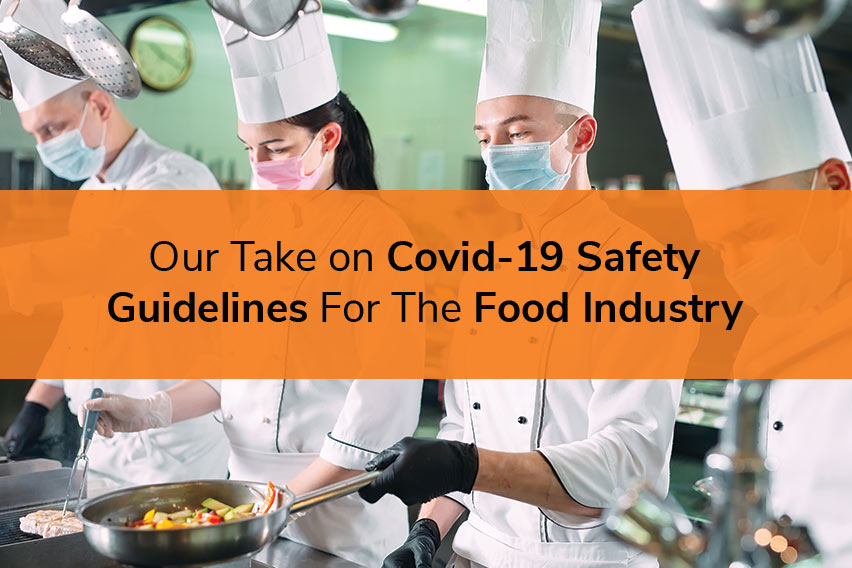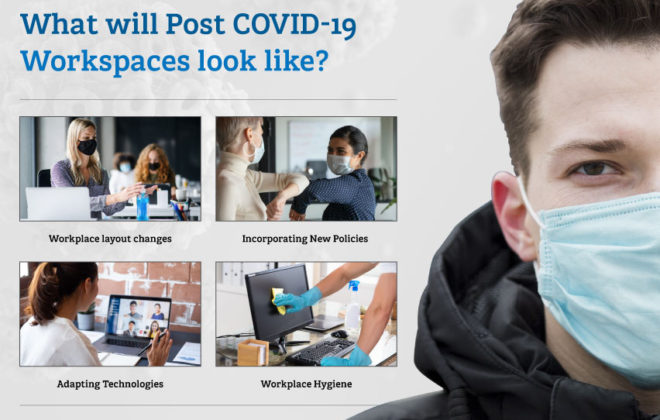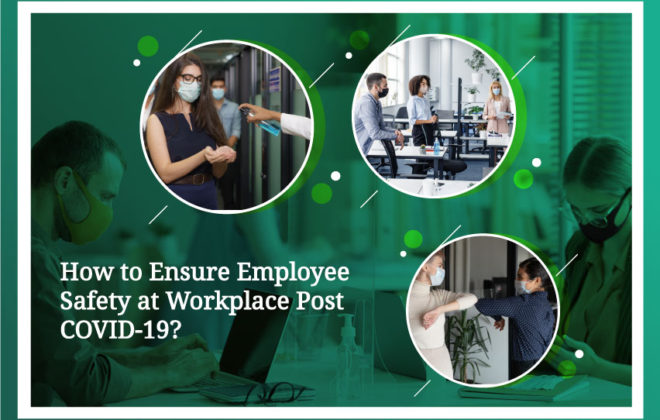Our Take on Covid-19 Safety Guidelines For The Food Industry
Covid-19 still holds industries in a fugue state across countries. India is no exception. There are several industries that are still stagnating from low mobility due to the pandemic. The World Health Organization (WHO) has advised several countries to reduce transmission through social distancing, restricting transport and enforcing work from home policies for businesses.
Though there are several industries that are able to adjust to these new policies, the food industry isn’t able to, and needs to continue working at their place of business. Maintaining and running food and supply chains on-site is critical for the survival of the food industry.
Governments understand that, so they have eased restrictions on the food industries. But businesses still need to prioritize the health and safety of their workers and customers. Maintaining the trust of your employees and the confidence of your customers is necessary for sustaining your business. So here is a summarized list of the guidelines WHO recommended for the food industry.
What Do These Guidelines Focus On?
They focus on practices to maintain good hygiene through the supply chain, prevent food contamination, and ensure health safety. We have simplified these guidelines into byte-sized information for you to read and utilize immediately.
Establish An Authority For Hygiene Standards
Businesses should establish a health safety team, failing that, at least appoint one person whose responsibility is to analyze safety risks across the business and ensure that safety measures are implemented. The benefit of having a central authority is to remove delays in decision-making when operating in this infection-prone environment.
Reduce Transmission in High Contact Zones
To avoid transmission through surface contact is the first priority, which is sure to happen due to how the food industry has to operate. Frequent washing and sanitizing of all utensils and surfaces are mandatory. Service personnel must utilize disposable gloves and be educated on how transmission occurs.
Enforcing social distancing
The recommended distance is 1 meter between individuals and other workers. Using floor decals will help workers adhere to social distancing rules without thinking twice about it. Implement staggering shifts and break times to reduce contact between them at any given time.
Easy access to disinfectants
It’s essential to ensure easy access to sanitizers and disinfectants for personnel to use for washing hands and cleaning high-contact surfaces such as countertops, tables, serving utensils, tongs and door handles. The person responsible for managing this should ensure that all staff members can easily access these supplies without leaving their designated work zone.
Use disposable gloves
For personnel in the food industry, disposable gloves are essential. Changing gloves after high-contact activities such as opening and closing of doors, using common telephones, or emptying garbage bins is mandatory. In the case of personnel who are working with food, hand washing, and changing gloves before and after handling food is critical. Since, other than the virus there is also a high chance of bacteria building up in the hands, due to humidity while wearing gloves.
Use of common canteens
Work hours in the food industry are long and erratic, so canteens remain a necessity for personnel to obtain food. So the rules of hygiene covered above apply doubly so for staff working at these canteens. The person you appoint should pay special attention to hygiene at canteens.
Self-Service Counters
Ideally, these should be closed, but retail stores and cafes can’t afford to do this, so utilize portable plexiglass shields and wrap open food items in cellophane packaging. If a service worker is handling items on display, they need to use tongs when placing it in bags.
Transport and Delivery
To minimize the possibility of infection from external sources is another obstacle that businesses have to deal with. Drivers and delivery workers should not leave their vehicles during deliveries. It’s crucial for businesses to provide a portable hand sanitizer and a set of fresh tissues to drivers. They should be informed to use their sanitizers before and after passing on their deliveries or signing documents. In the case of reusable containers, workers should be instructed to disinfect them before entering the premises.
Educate your employees
Your employees should be aware of how COVID-19 transmission can happen while they carry out their duties. They can pick up the virus when touching surfaces such as door handles, service utilities, and mobile devices. Emphasis the importance of social distancing and putting up COVID 19 signage all-around your workplaces to keep reminding them, of how to prevent infections.
So there you have it, the guidelines issued by WHO for the food industry. We hope that due to our simplification of their guidelines, you can implement these without delay.




